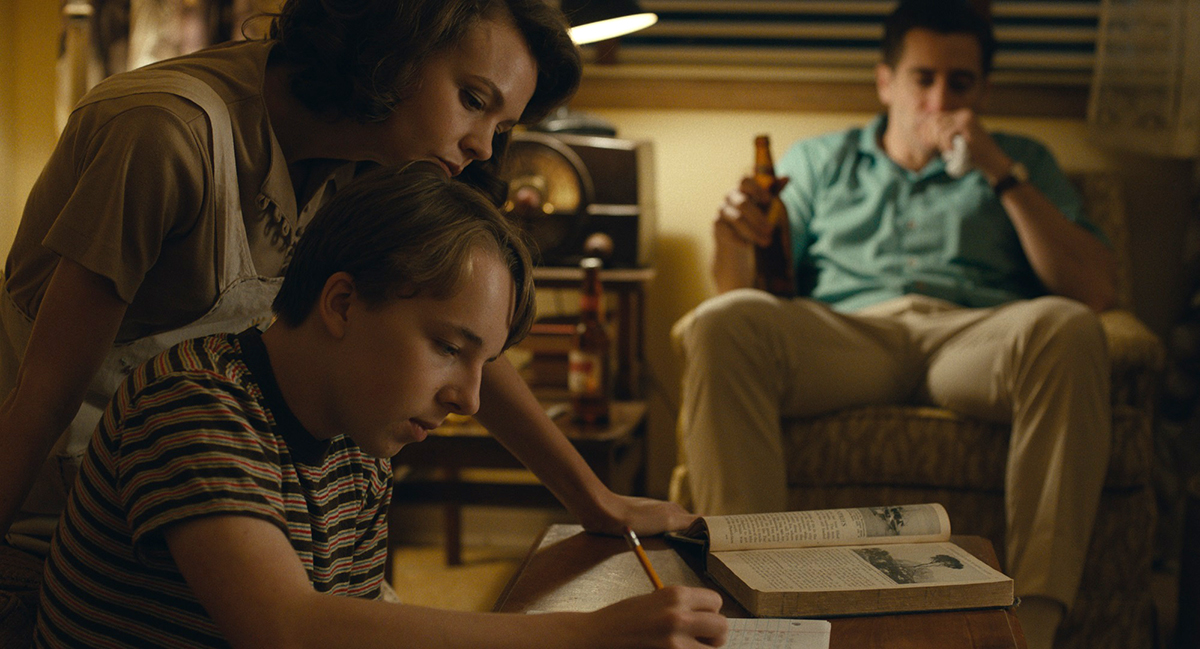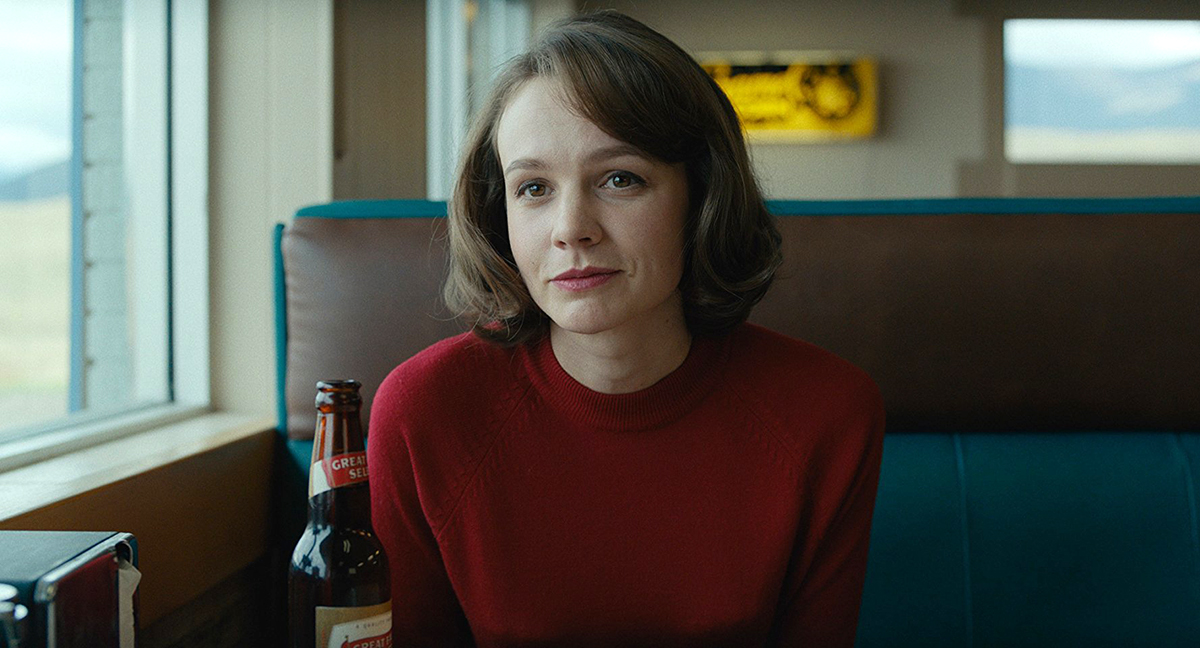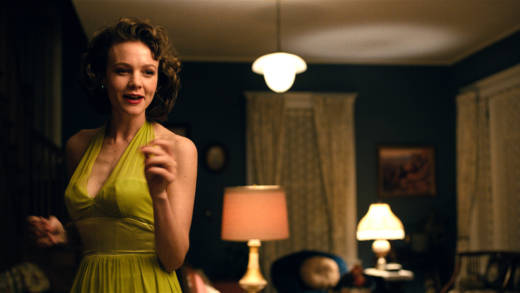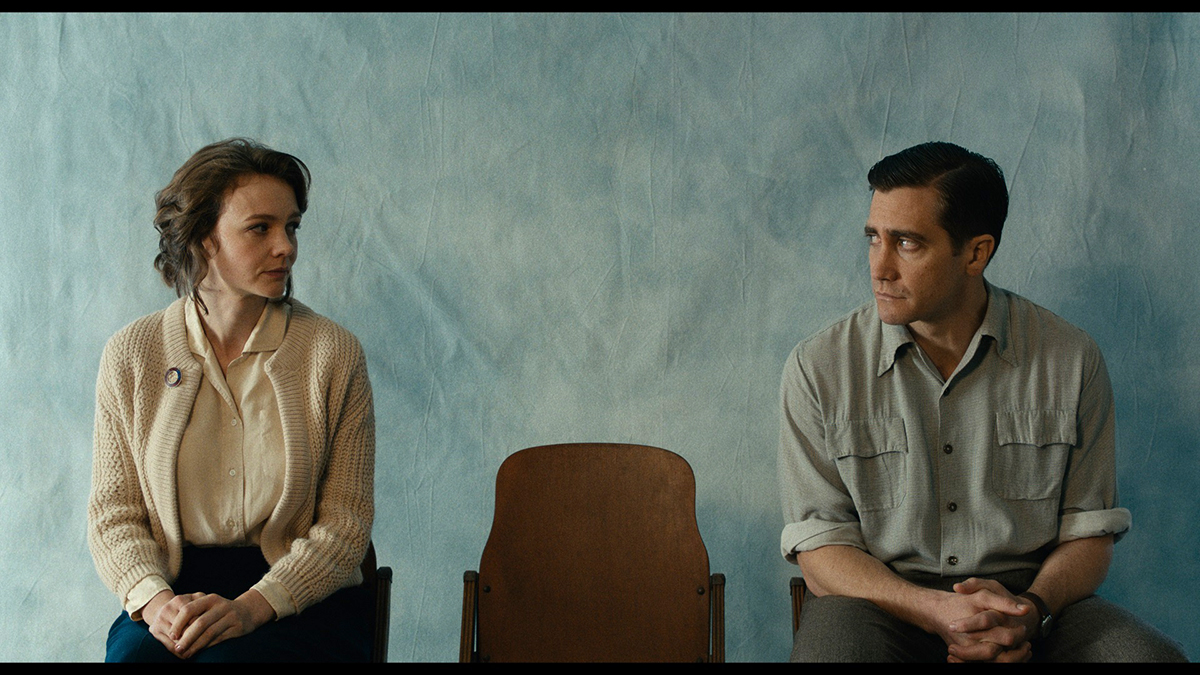America is on fire and the nuclear family is burning in Paul Dano’s melancholic film, Wildlife.
Based on the novel of the same name by Richard Ford, the film follows the end of a marriage through the eyes of the couple’s teenage son, Joe Brinson (Ed Oxenbould). The family moves from place to place because father Jerry (Jake Gyllenhaal) can’t hold down a job for long. Despite this, mother Jeanette (Carey Mulligan) remains supportive of her husband. But when he takes a job as a firefighter and moves out of their apartment to join the front lines, she’s left without income and—in 1960—with few options.
While husband and wife struggle to stave off poverty, a fire rages in the background, an affecting metaphor for a marriage in peril. But Dano, who was in San Francisco earlier this month, adds that what’s being threatened is the American dream, and it’s combustible. “I think that both of these parents are suddenly faced with what their present lives are rather than the idea of what they were meant to be,” the director explains. “And they implode.”

Wildlife quickly conveys the kind of madness that can infect a family without a way to earn money. In a shot that establishes Jerry’s position in society, the camera, low to the ground, focuses on a hand shining a golf shoe. Dano pulls back and widens the frame to reveal Jerry on his knees. When he loses his job at the golf course for being overly familiar with the patrons, we understand his sense of powerlessness and frustration. It’s not enough for his employer that he performs part of his job on his knees, his spirit has to be cowed too. He’s a servant, and not their equal.
With Jerry off fighting fires, Jeanette’s employment options are just similarly limited. And it is during this transition from marital strife to job search as, essentially, a single mom, that Wildlife becomes Carey Mulligan’s film. Asking for work and repeatedly rejected, Mulligan smiles all the while, refusing to betray her desperation.

What most drew the director to the source material was a scene in which Ford writes about Joe watching his mother teach a swim class. “He’s seeing everybody around her, probably thinking, ‘There’s a woman who’s got a nice smile. Or there’s a woman who’s got a good figure, or there’s a woman who looks happy,'” Dano says. “But he knows something is wrong. And that’s where the duality is in us, the presentation versus the layers. That excited me.” As the pressure builds, Jeanette loses the ability to hide that duality from her son.




